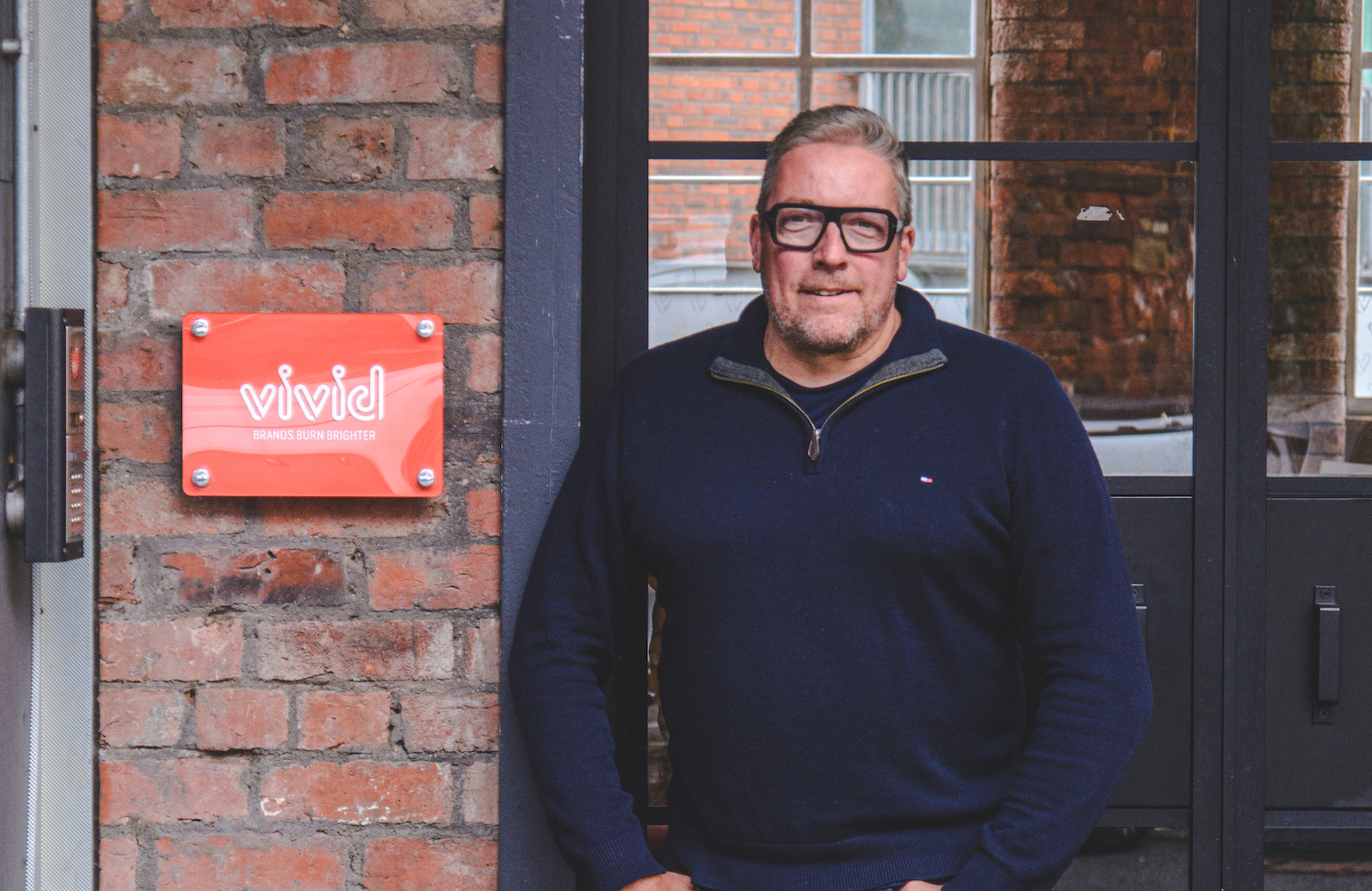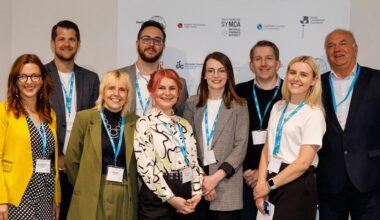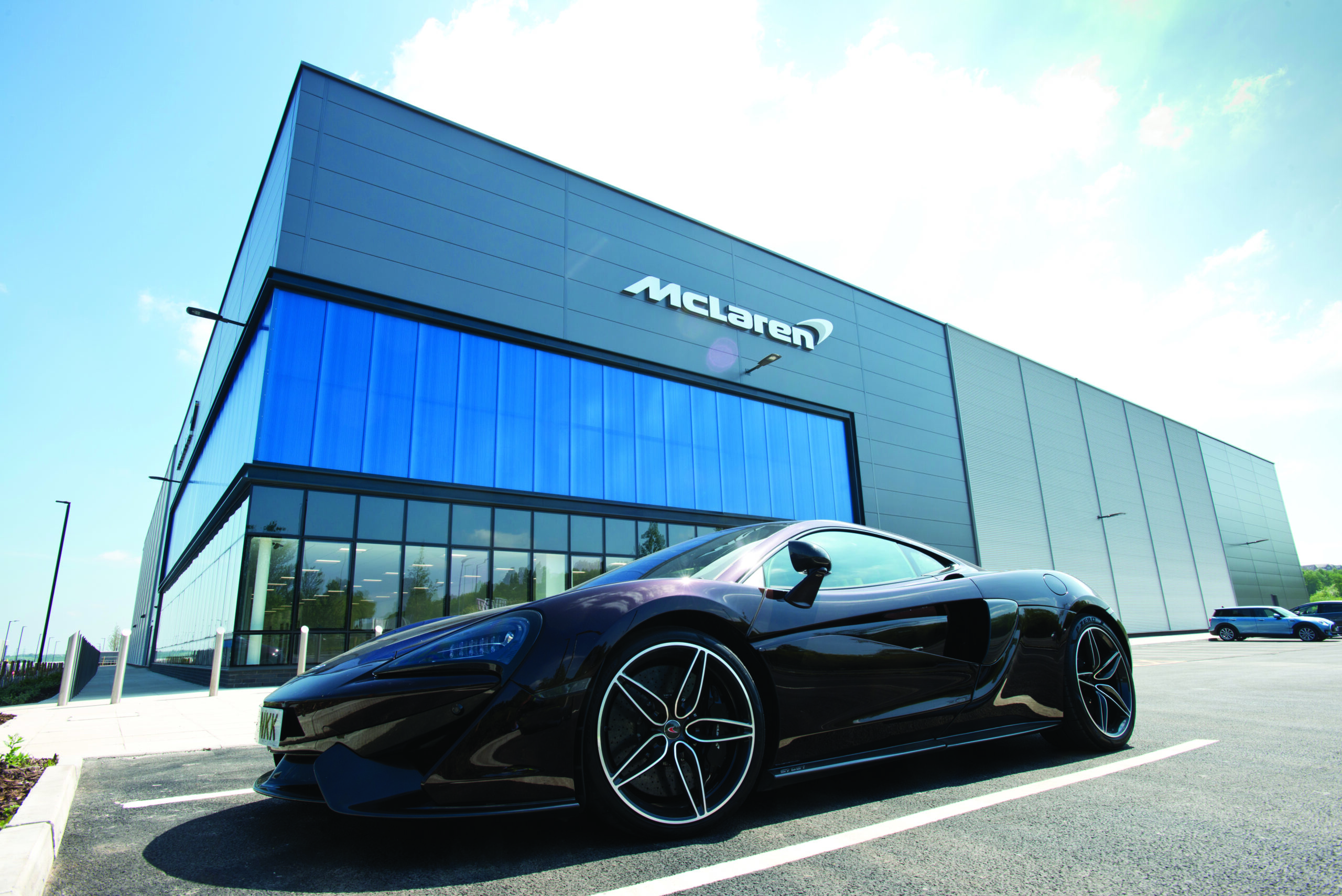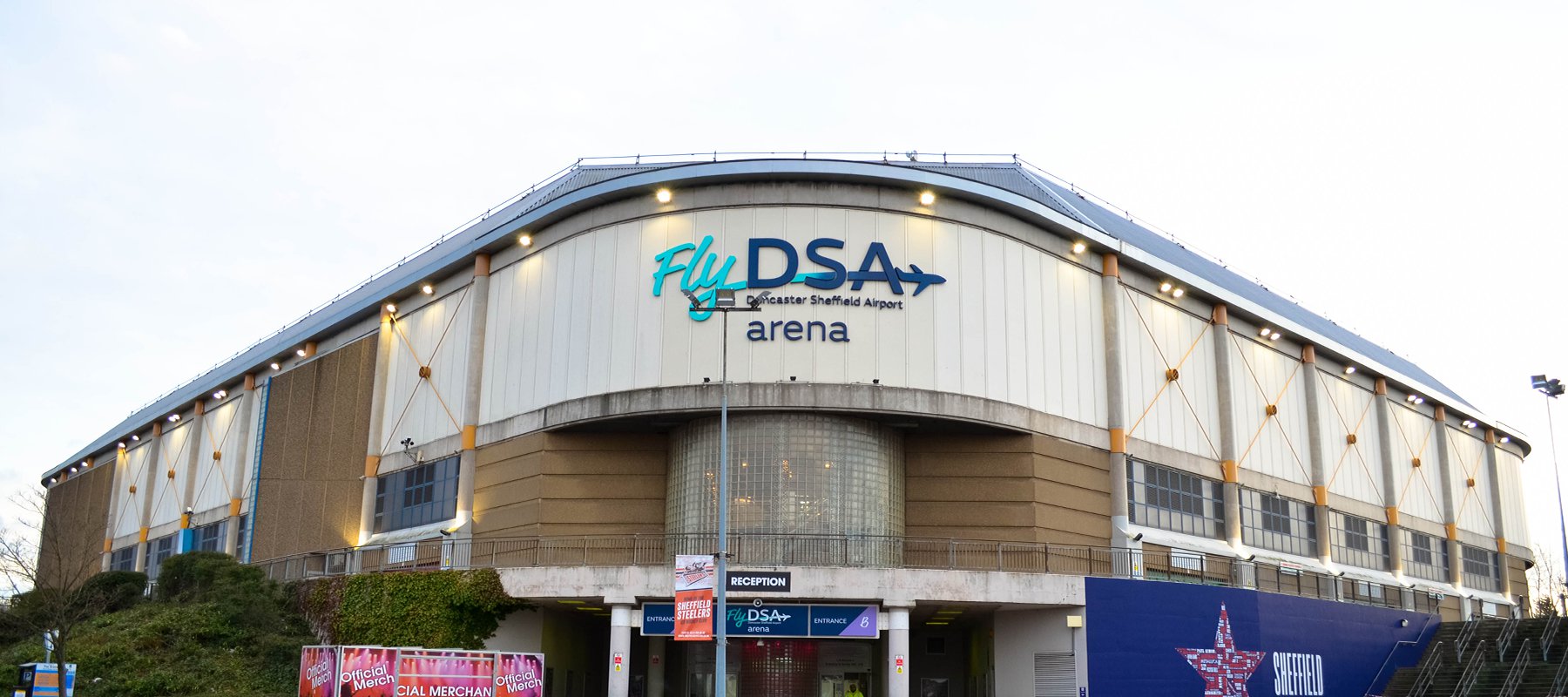Now in its 26th year, Vivid Creative has grown from print-era pitches to data-led campaigns. Founder Gerry Arcari talks to unLTD about the business’s roots, impressive growth and the ethos that keeps results coming
On a chilly weekday afternoon, unLTD drops into Vivid Creative’s Kelham Island base – a light-filled, modern industrial unit where exposed brick and steel meet gleaming iMacs. In a spacious boardroom that feels more like a trendy weekend brunch spot than a meeting room, a neon sign hums away, spelling out “Brands Burn Brighter”.
If you have worked in Sheffield’s creative scene for any length of time, you will have heard of Vivid. The agency’s been part of the city’s business fabric since the early 2000s, led by founder and CEO Gerry Arcari – an ex–outdoor industry insider who built the business in the late analogue days and steered it through the digital pivot, the social deluge and today’s AI swirl.
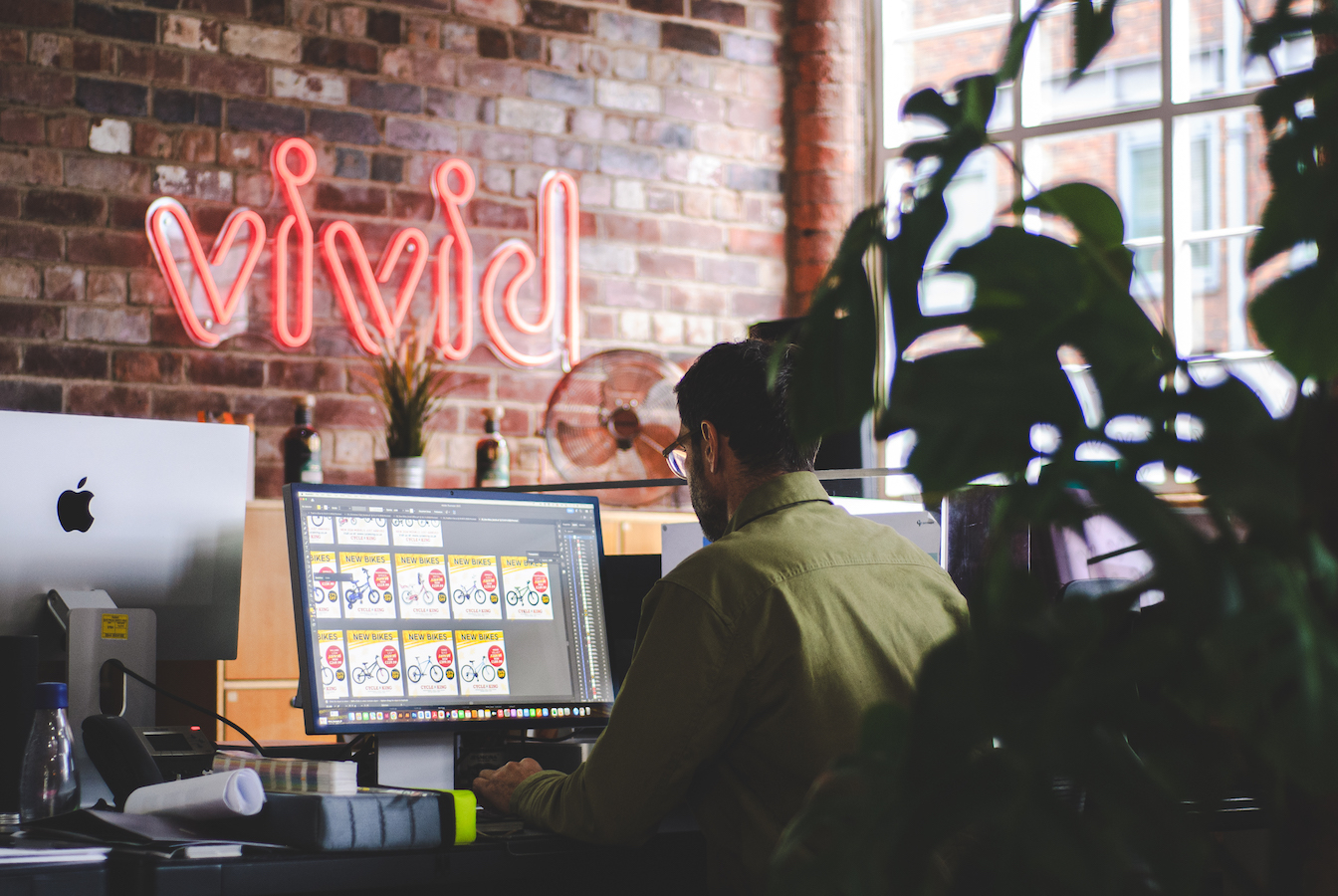
Gerry arrived in Sheffield from Kent for university, drawn by the Peak District and the city’s blend of vibrant city and open space. A passionate climber, he became part of the Foundry scene and then moved into the outdoor trade through contacts, first at Terra Nova and later at the now-global outdoors brand Rab, where he found himself deep in product, production and brand – diagnosing manufacturing gaps, planning production, sponsoring athletes and, crucially, working with agencies. “I worked with a marketing manager who took me into agencies. I loved it,” he says. Back then, marketing meant print. “It was on paper, in magazines and adverts. You had to tell an entire story on one A4 page.” One line from an early bothy bag campaign still sticks with him: “Hell to shelter in seconds.”
By 1999–2000 he had made the leap, setting up Vivid with a creative director he’d worked with, initially out of a house in Castleton then Leeds before returning to Sheffield. Early wins came in the world he knew best. “When we set Vivid up, we were exclusively an outdoor agency. We worked with Pertex and Gore-Tex and Lowe Alpine in eight languages – that was our biggest early contract,” he recalls.
Those first years were high-energy and hands-on. “It was old-school pitching – black boards, spray mount, late nights,” says Gerry. But Vivid quickly moved with the times. “When we first set up, we started building websites. In 2001 we were doing e-commerce and producing proper sites for SMEs – some of them were built in Flash. People could see what was coming and wanted the latest thing. Once a competitor had it, everyone else played catch-up,” he says.
Branding was – and remains – the agency’s spine. “In 1999, we set our roots as a brand and creative design agency and we still offer those services today. Branding is at the heart of everything we do.” Web and digital capability followed, then a formal performance marketing team in 2019 to cover organic search, social and paid media – a rounded offer built to get results
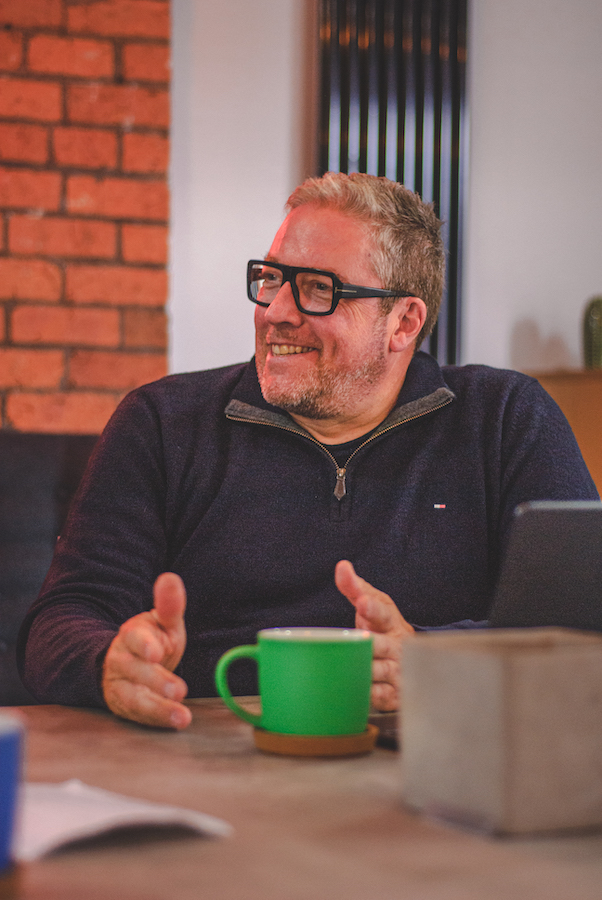
Like every agency, Vivid had to wrestle with the post-Covid market. Gerry is candid about a leadership misstep that coincided with the shift. “We had a really good year through Covid. I brought in an MD, and I thought we were going to come out of Covid and everyone would say, ‘Thank you for that – let’s go and smash it.’ I was a year too early. That was one mistake I’ve made in this business,” he says. “The agency is smaller today than at its pre-Covid peak, but we’re doing the same amount of work at higher quality.”
A key critique is the volume game that has overtaken social media. “There’s a lot of quantity over quality. I see in-house marketing teams pumping out content, and no one has engaged with it. It’s just filling inboxes,” he says. The answer, he adds, is focus and segmentation – old-school principles applied to modern tools. “It’s about proper targeting – not just throwing it all out in a bucket. Accountability is key, and we’re only as good as our last set of results. We report monthly. It’s tangible now.”
Despite having a range of successful international clients, Vivid’s Sheffield roots run deep. Its Kelham Island studio, situated in the Grade II listed Wharncliffe Works, is a working space and client hub; the portfolio itself includes local heritage and consumer favourites. “We worked on the Thornbridge website and the Hendo’s website – those local links are really important to us,” says Gerry. Recent local collaborations include Integrity Malts, for whom Vivid designed the brand and bottles now seen across city bars. “We work globally, but we love it when small SMEs come to us with problems to solve,” he adds.
Further afield, a long-running relationship with Metallix Refining – a US-based precious metals recycling firm – shows the full-stack model in action. “We rebranded them. We’re on the second website. We’ve built a customer app that’s now in its second version. They recover precious metals from manufacturing and waste, so there was a great sustainability story to tell.”
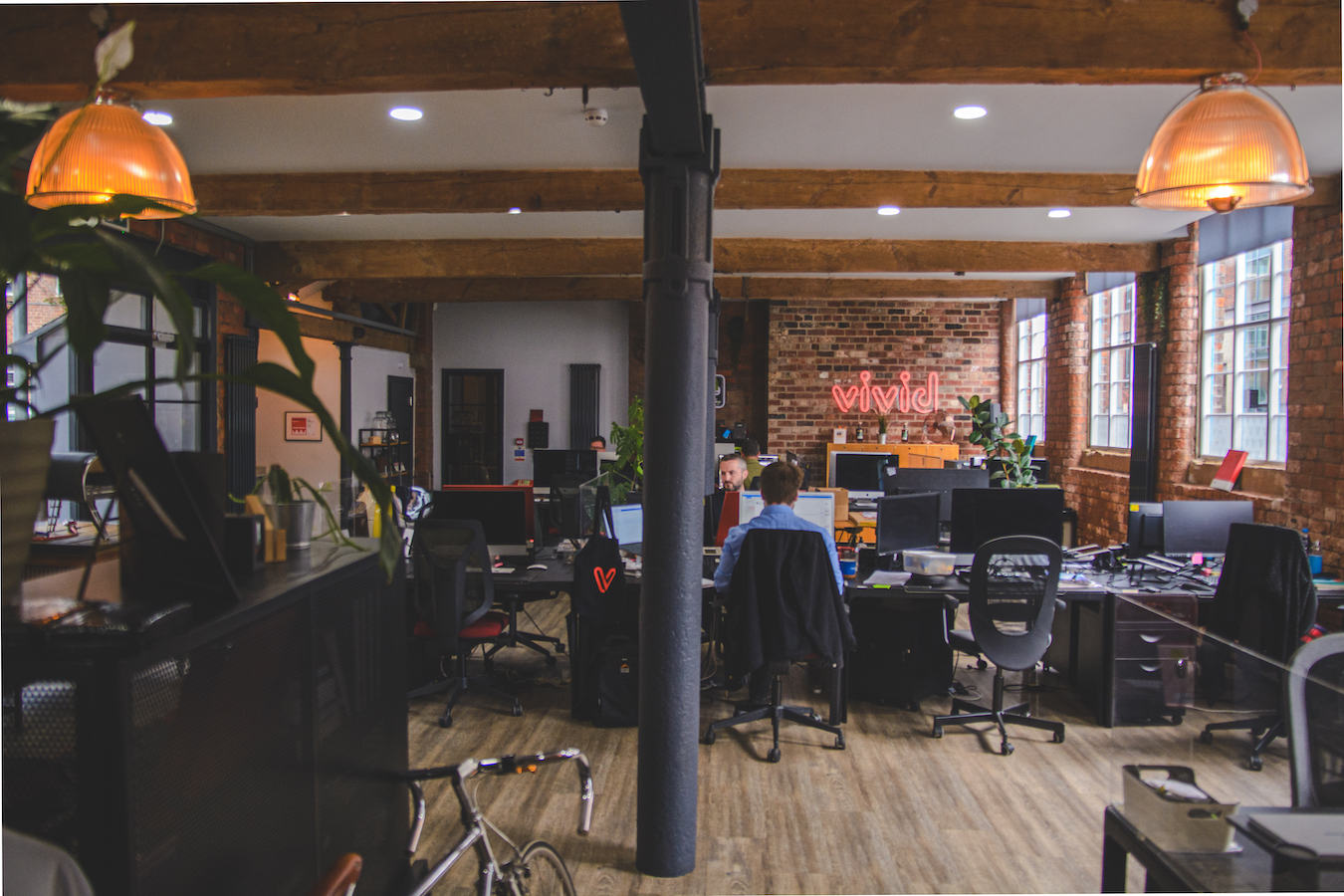
Ask Gerry what keeps an agency durable and he will start with people – clients and team – then quickly move to process. “People are really important, and I like to think Vivid isn’t me,” he says. Long-standing colleagues such as creative director Jon and commercial director Ben are, he adds, “the backbone of the operation”. The culture is studio-first. “I like everyone to be in the office, which might be a little controversial these days! But I set up Vivid to work with great people and bounce off each other. You overhear something and save hours through that alone.”
The chemistry only works if the basics are nailed. Retainers are now central after Covid exposed the fragility of a project-only pipeline. “Having retained clients is a must. You can’t rely on winning projects. If retainers cover your base costs, projects then drop in and you can shape the work around them,” he explains.
If there is a through-line from those spray-mount pitches to today’s dashboards, it is discipline and taste – taking the time to think and resisting noise. “Slow down to speed up,” is how Arcari puts it. He is wary of the compulsion to post for the sake of it. The agency’s internal mantra is that marketing spend should feel like an investment, not a cost. “We don’t shy away from anything. Although we’re quite small, we’re perfectly formed, and we do brilliant work. Every job we’ve done has been successful in my opinion,” he says, adding that the firm’s offer is deliberately end-to-end – brand first, then digital and performance to suit.
That belief is grounded in a brand-first view of channels and a practical streak shaped by his client-side past in manufacturing and retail. “I I know the challenges. I’ve got an appreciation of manufacturing and selling to retailers and consumers,” he says. It is why Vivid asks “those difficult questions” before anyone opens Figma or Ads Manager.
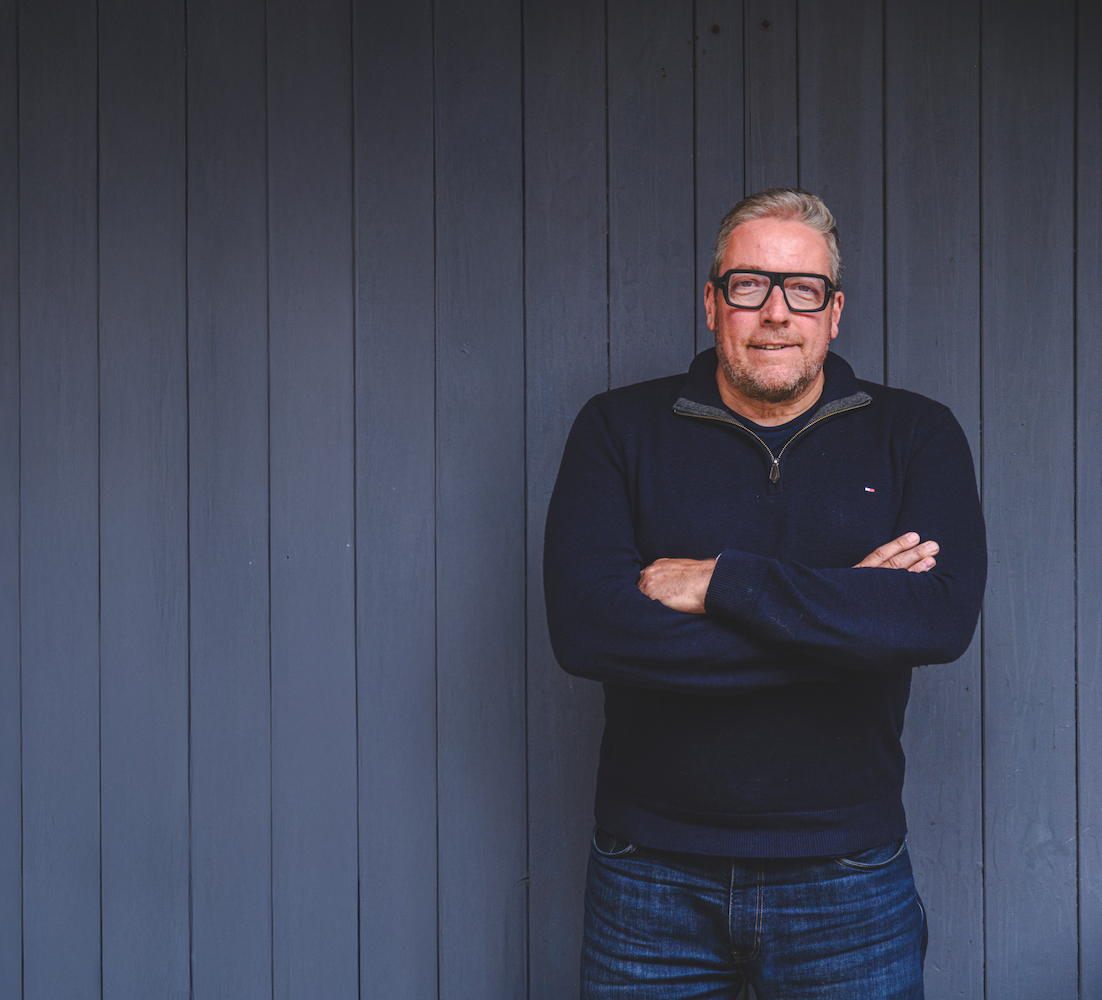
While joking that he’s wary of sounding like a LinkedIn thread, he does not duck advice for those looking to set up their own agency when asked.
“Put the time and graft in,” is the first . In the early years he locked himself in a room for months, hammering the phones for meetings and pitching through the night. “When you set up a business, that’s what you do.”
“Get the best people” – and they do not all need to be on payroll. Vivid has kept a tight in-house team alongside trusted freelancers so capacity can flex without lowering the bar. “We’ve got a really good bank of freelancers and deep connections in Sheffield.”
“Document everything.” Scopes, deliverables, approvals, ownership – especially where AI tools are involved – need to be explicit. “Statements of work, contracts and AI-aware T&Cs – these are always essential.”
And finally, “have fun”. If the work is a grind, something is mis-aligned. Studio energy matters – for the team and for clients who step into it. “If you’re not having fun, ask yourself why you’re doing it.”
So, after an impressive 26 years in the game, what’s next for Vivid?
The plan is continuity with evolution – to keep Vivid relevant as channels shift, while setting up the next generation to lead. “I’m coming up to 55. I want Vivid to continue, so I’m setting up the team to lead it forward,” he says. That means staying boutique by choice and doubling down on the agency’s differentiator: senior attention on brand, with creative and performance wrapped around it.
“We move with the technology, and we’ve got experience behind us,” he says as our interview reaches a natural end. “The best thing about an agency like Vivid is the privilege of seeing into hundreds of different businesses. You absorb it. You spot the patterns. You can say to a client, ‘We’ve seen 50 companies like yours,’ and that gives you a kind of superpower. We use that wisdom to cut through, not add to the noise.”

